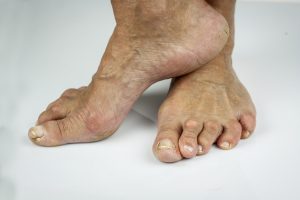 Rheumatoid arthritis (RA) patients with fibromyalgia (FM) experience decreased function status. Compared to rheumatoid arthritis patients without fibromyalgia, patients with both conditions experience a greater decrease in function within two years.
Rheumatoid arthritis (RA) patients with fibromyalgia (FM) experience decreased function status. Compared to rheumatoid arthritis patients without fibromyalgia, patients with both conditions experience a greater decrease in function within two years.
Fibromyalgia is characterized by musculoskeletal pain all over the body. Patients with a rheumatoid disease have a 20 to 30 percent higher risk of developing fibromyalgia.
Advertisement
Previous studies have found that RA patients with fibromyalgia experience a worse quality of life. For the newer study, researchers aimed to evaluate life quality in rheumatoid arthritis patients with fibromyalgia over the course of two years. The study was comprised of 156 rheumatoid arthritis patients of which 26 had fibromyalgia and the rest did not. The participants completed questionnaires every six months and went through laboratory tests and physical evaluations. Functional analysis was determined by two surveys: the Multidimensional Health Assessment Questionnaire (MDHAQ), which scores on a scale of zero to three (three indicating the worst status), and the FM survey scale.
The results of the survey revealed that rheumatoid arthritis patients with fibromyalgia had higher baseline MDHAW scores, as well as Hospital Anxiety and Depression Scale scores.
The researchers concluded, “MDHAQ scores typically only increase 0.01-0.016 units per year in stable RA patients. Future studies are needed to determine if treatments for FM can reduce functional status decline among individuals with established RA.”
Ultrasonography in assessing treatment for rheumatoid arthritis and associated fibromyalgia
Ultrasonography is used in assessing treatment for rheumatoid arthritis and associated fibromyalgia. Ultrasonography can help predict disease activity along with detecting rheumatoid arthritis characteristics. The research team used ultrasonography on rheumatoid arthritis and fibromyalgia patients and determined that it should be used to assess treatment in patients.
Advertisement
Lead author Dr. Linda Jessica Ghib wrote, “Ultrasonography… is a good marker of prognosis. The main aim of this study is to evaluate and to compare the ultrasonography and DAS28 scores between RA, RA and associated fibromyalgia, and fibromyalgia patients.”
Females were enrolled in the study either had rheumatoid arthritis, fibromyalgia, or both conditions together. The researchers collected Disease Activity Scores 28 (SAD28) and conducted ultrasonography on joints. Those with rheumatoid arthritis and fibromyalgia together had higher DAS28 scores.
The researchers wrote, “Ultrasonography scores correlated moderately only with DAS28… in patients with RA, and not in patients with fibromyalgia/RA.”
